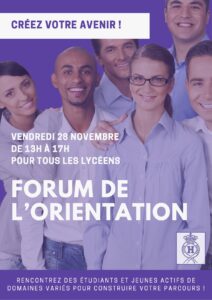Secondaire
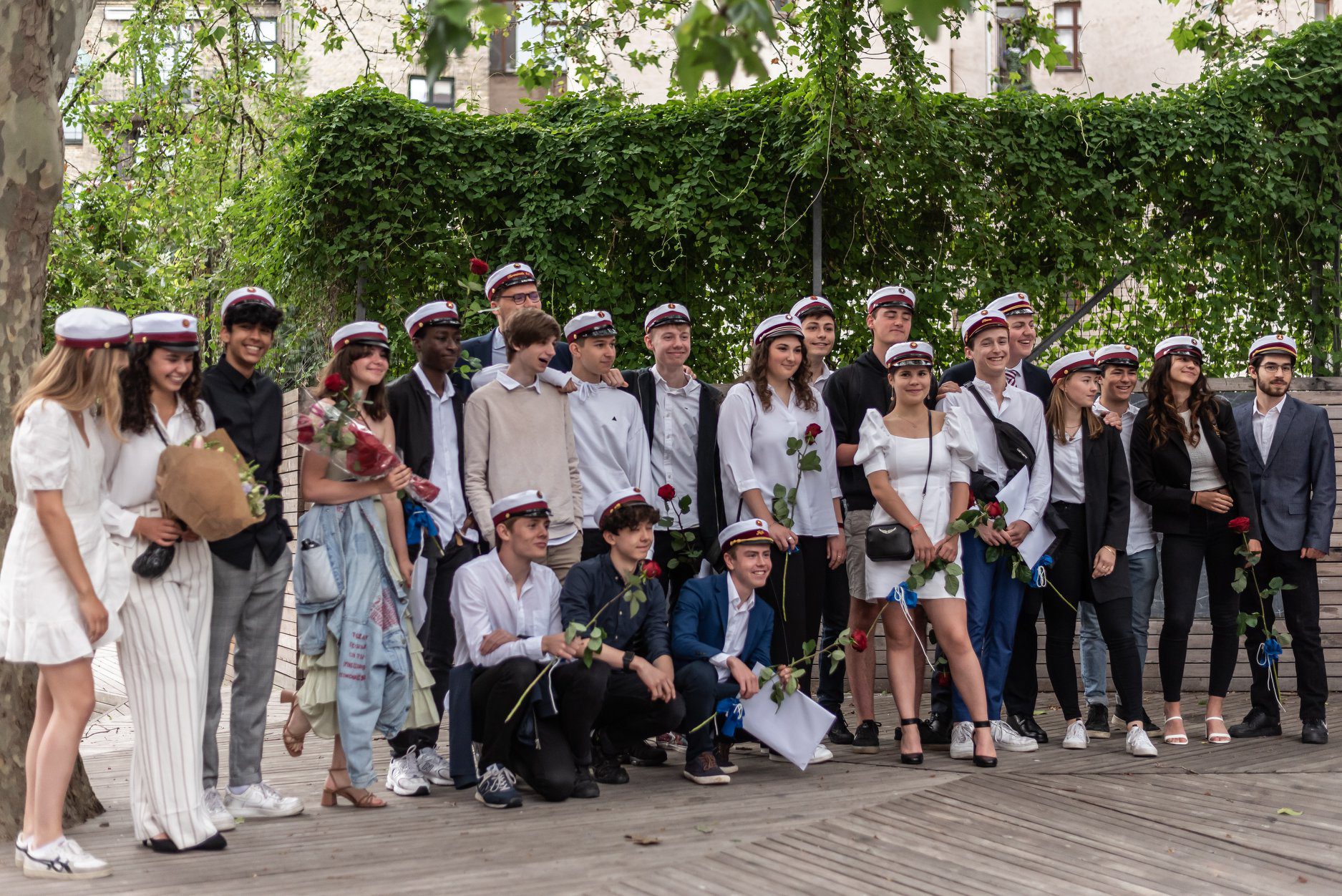
Secondaire includes collège students, ages 10 to 15, and lycée students, ages 15 to 18.
Collège and lycée at Prins Henrik School offer a high-quality education with reduced class sizes, enabling teachers to devote more time to each individual student. Students in collège and lycée are taught and supported by professionals and experienced teachers who follow the French curriculum, are accustomed to working in an international environment, and teach in Danish, English, German, and Spanish. Danish classes adhere to the Danish public-school requirements and curriculum.
Collège is the first level of secondary school at Prins Henrik School. Collège follows the official government curriculum established by the French Ministry of National Education. Collège takes four years to complete and consists of different educational cycles.
| 6th grade |
| 7th grade |
| 8th grade |
| 9th grade |
- 6th grade is a transition year between primary and secondary school.
The goal is to solidify what was learned during the last two years of primary (3rd cycle: 4th, 5th, and 6th grade). Another aim is for students to develop the good work habits and methods necessary for collège and for them to become more autonomous learners.
At Prins Henrik School we pay close attention to students starting in the 6th grade, making sure the introduction to new subjects, the increased expectations, and their first experiences with flexible scheduling unfold in the best manner possible.
The class-teachers arrange a trip for the 6th graders at the beginning of the year in September. For more details, click here.
- In 7th, 8th and 9th grade, which constitute the 4th cycle, the curriculum gradually becomes more demanding and academically challenging.
Over the course of three years, students broaden their knowledge of different subjects and other multidisciplinary studies.
An example of multidisciplinary studies includes the 8th grade interdisciplinary “City” project (E.P.I), which spans both French, history-geography, and foreign languages.
Students begin learning their second foreign language (German or Spanish) in 7th grade.
Our Study Guide can help students decide on a specific track for their secondary education.
9th grade prepares students for the French Diplôme national du brevet (DNB) and for 2nde (their first year of lycée). In addition, at the end of Folkeskole (primary and lower secondary school in Denmark) students must sit for the compulsory oral and written examinations in Danish.
 |
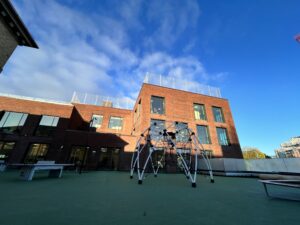 |
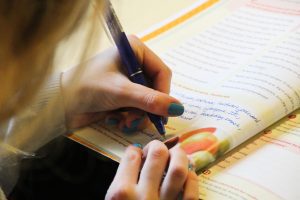 |
The French curriculum introduces students to the main disciplines and methods required in primary and lower secondary (the 3rd and 4th cycles).
The curriculum follows the goals defined in the Common Base for Knowledge and Skills (Le socle commun), which is divided into 5 core areas:
1 – Foreign language learning: spoken and written.
2 – Methods and tools for learning
3 – Moral and civic learning
4 – Natural systems and technological systems
5 -Representations of the world and human activities
Here is a link to the official French goals for knowledge, skills, and culture.
The collège curriculum is designed to teach students the core objectives. Students should reach the goals outlined in the curriculum by the end of lower secondary.
Students in the 6th grade do not receive grades, which is the case for all levels within the third cycle. Students are evaluated on their abilities and rated according to a color scheme that indicates their level of achievement:
| Very satisfactory |
| Satisfactory |
| Less than satisfactory |
| Did not meet the expectations |
Students receive grades starting in the 7th grade until the end of collège (according to the French grading scale: 0-20) and are evaluated according to their abilities.
Staring in the 6th grade, the academic year is divided into two semesters, and thereafter into trimesters for the rest of collège.
Grades are sent to the family after every class council.
The state-regulated tests in oral and written Danish use a 7-point grading scale.
In addition to the official French course curriculum is the Danish language requirement.
In addition to the above courses, 6th to 9th grade also includes:
- Teacher support (AP). AP is learning in little groups or with the entire class, either with the class-teacher or another teacher.
- Activities are arranged according to the needs of the students, strengthening the skills of weaker students, while broadening the knowledge and methods of other students.
- Class Time (at most 10 hours/year) is arranged by the class teacher with the aim of giving students a forum for discussion.
NB: The French curriculum no longer refers to a first or second language. English is Language A, and German and Spanish are Language B.
Prins Henrik School’s lycée follows the official government curriculum set by the French Ministry of National Education.
Lycée takes three years to complete.
| Seconde |
| 1ère |
| Terminale |
- Seconde is a transition year between collège and lycée. This year focuses on strengthening and anchoring the different disciplines, on fostering a common (campus) culture, and getting students to commit to a more specific curriculum (spécialité) in 1ère and terminale.
- 1ère and terminale represent the final years of lycée, which was recently reformed. The previous branches (L, ES and S) no longer exist. Students now have the choice of creating their own spécialité subject, which better suits their interests and ambitions.
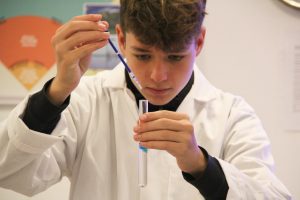 |
 |
 |
- Seconde continues most of the subjects from collège:Math, French, History-Geography, and Civics, Foreign Language A and B (English/German or Spanish), Physics-Chemistry, Biology, and Physical Education.There are now two additional options:Social Studies
Information Technology (IT)
- In addition to the compulsory subjects, students choose an elective. Prins Henrik School offers three choices:
– Film and Audio-Visual Studies
– Sports
– Section European English
Seconde gives students time to decide which three “specialité” subjects they will focus on in 1ère.
The school does not offer Technical Gymnasium courses.
For more information see the curriculum for seconde.
- In 1ère. and terminale there are two types of courses:
– Compulsory
– Spécialité subjects
The compulsory subjects include:
- French in 1ère and Philosophy (in terminale)
- History-Geography
- Civics
- Foreign Language A and B
- Sciences
- Physical Education and sports
Spécialité subjects at Prins Henrik School include:
- History, Geography, Geopolitics, and Political Science
- Humanities, Literature, and Philosophy
- English in the Modern World
- Math
- Physics and Chemistry
- Biology
- Social Science
1ère: Students choose three spécialité subjects
Terminale: Students continue two of their three spécialité subjects
For more information about courses for 1ère and terminale click here.
Please note: there is only one elective in seconde.
Please note: Students have the option of taking two electives in terminale.
In addition to the classes mentioned in the above timetable:
- Time with a Support Teacher (AP): for students who need additional guidance or student counseling.
- Class Time (10 hours/year max.) arranged by the class-teacher with the aim of giving students a chance to be heard and to discuss.
Film and Audio-Visual Studies Elective
Electives are two hours a week. Below is a description and outline of the goals for the course:
- Acquire a working knowledge of the technical and practical aspects of all stages of film production (manuscript writing, script, recording, and editing)
- Film appreciation (film directors, film, trends, and film genres)
- Develop a critical eye and aesthetic sense in regards to film and visuals in general.
- Research the professional world of photography, film, and audio-visual art.
- Strengthen the student’s multidisciplinary skills:
– Creativity and ingenuity/brainstorming skills
– Group work
– Handling technically complex devices (Camera, microphone, lights, software for editing…
– Increasing awareness of what the host country offers (Movie theaters, production studios, festivals…)
Read more about student activities and projects in our Electives Blog.
You can check out the curriculum in the creative electives section: under Film and Audio-Visual Studies (optionnel d’arts – cinema audio-visual) for
seconde
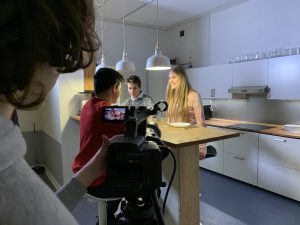 |
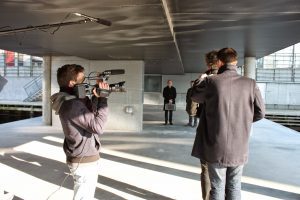 |
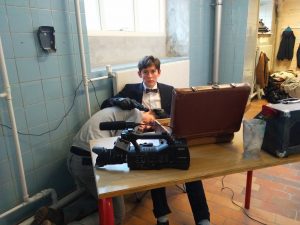 |
Physical Education and Sports Elective
Our sports elective is always a huge attraction for the young athletes at our school, who would like to increase their strength, work on endurance, and improve their technique, especially within the following sports: strength training, volleyball, and badminton.
Students are also required to approach the subject academically, and do research on a specific sports-related topic, preparing both a written and oral presentation at the end. In addition, the course includes group projects, where students are responsible for organizing a school sporting event, and at some point, choosing a topic to prepare and teach to the rest of the class.
Aside from the obvious benefit of physical exercise, the sports elective also covers general health and physical education topics, along with the opportunity to learn about different sports.
Danish as a second language (1ère and terminale) Elective
See “Danish – languages offered in secondary.”
“Supplemental Math” and “Advanced Math” (in terminale) Elective
Students entering terminale, who are looking to improve their math skills, can add up to three, six, or nine hours additional math classes to their schedule per week.
– 3 additional hours of math for students in terminale who have dropped their math spécialité.
– 6 hours of math as part of a spécialité subject.
– 6 hours of math as a spécialité subject in addition to a 3 hour “advanced-Math” elective
Read more about Math Electives
A multilingual Education
Learning in different languages such as French, Danish, English, German, and Spanish is an integral part of becoming tolerant and discerning citizens. Foreign language learning prepares students to communicate in a global and connected world, while also gaining an appreciation for cultural diversity. See card of languages.

Up-Close-And-Personal Teaching
Aside from teaching students practical language skills and preparing them for exams and language certificates, our focus at Prins Henrik School is the development and well-being of each and every student.
Dynamic and Motivating Pedagogy
Language learning at Prins Henrik School is based on both oral and written projects in order to make the learning experience as dynamic as possible. Students develop a real-life connection to the language through their work, especially when their individual or group presentations are exhibited around campus.
Danish Classes in Collège
Danish is a compulsory subject in collège at Prins Henrik School. For more information, see the timetable under collège.
Danish classes aim to support language learning at all levels. We take into consideration the individual needs and abilities of students, whether they’ve recently arrived, are still learning to use Danish in their new everyday life, or they are Danish native speakers preparing for the Folkeskole (public school) exam in Danish. Danish classes offer a wide variety of activities, where students can develop their reading, writing, and oral expression, while also gaining an appreciation of Danish culture and literature.
Danish courses in collège follow the Ministry of Children and Education’s Common Objectives for Danish.
Below are two links to reading in general and recommendations for books in Danish:
Danish Studies at the Lycée level
Danish is compulsory in seconde, either as a second foreign language or as a part of the DFB.
Danish as a second foreign language instruction adheres to the goals outlined in the French curriculum for foreign language learning. The subject aims to improve the language skills of students, along with increasing their knowledge of the host country’s culture. Students immerse themselves in different themes and texts while working on their oral and written Danish.
Students can take the French final qualifying exam in Danish as their foreign language A (B2 level requirement according to the Common European Framework of Reference for Languages), as their foreign language B (B1 level requirement) or as their foreign language C (elective).
For more information see the Common European Framework of Reference for Languages.
For course hours, see Danish as a foreign language in the lycée timetable.
Danish/French Baccalauréat (DFB)
DFB is a double final exam, which is a combination of the French final qualifying exam and an exam based on two subjects from the Danish STX program curriculum: Danish level A and History level A. These courses take three years to complete with 3.5 hours of Danish and 2 hours of history per week.
Students enrolled in Danish continue to broaden their knowledge of literature, media, and language, while also improving their methods and strengthening their oral and written expression.
History courses emphasize the importance of best practice and source criticism in the study of both Danish and World history.
Instruction largely draws upon student collaboration, including group work, where students actively participate in their own learning.
Instruction of Danish level A and History level A follows the national curriculum for STX.
Students are required to sit for three exams as part of the DFB at the end of terminale. In addition, they also have the French exams. For more details, see Lycée
For further information on the exams, see DFB.
English at the collège level
English as a second language in collège is a direct continuation of the compulsory English subject taught at the primary level. At the end of 9th grade, students are generally expected to meet the requirements for the B1 level, as defined by the Common European Framework of Reference for Languages, demonstrating the following language skills: can understand main points of clear standard input, can deal with common situations where the language is spoken, and can produce simple connected texts or dialogue. A large number of our students are highly proficient in English, having studied the language since first grade. For more details on course hours, see our collège timetable.
Our English department introduces students early on to the joy of literature through books, by allowing for reading time in class, poetry (participation in World Poetry Day), and theater. Likewise, they also teach about major events in history, giving students an awareness of the cultural diversity that characterizes the English-speaking parts of the world.
PARLE English option
Motivated students in 7th, 8th, and 9th grade now have the possibility of adding the option of PARLE: One hour per week in preparation for the Cambridge Certificates, as well as two hours of science classes (Physics-Chemistry or Life Sciences at DNL), which are taught in English.
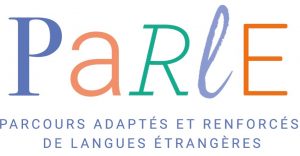
The Cambridge Certificate is a series of world-renowned certifications used to assess the level of stude
nts at every stage of their learning. We offer differentiated preparation for 3 levels of certification: A2 Key, B1 Preliminary and B2 First.
*In order to prepare for PARLE, which starts in the 7th grade, students in the 6th grade are split into smaller groups, where some have Science and Technology in English.
English Studies at the Lycée level
According to the official curriculum, students should advance from a B1 level in English LVA in seconde, to qualifying for a B2 level at the end of terminale, in order to reach the requirements set by the Common European Framework of Reference for Languages. They can also qualify for a C1 level. See below.
Language instruction at the lycée level is intended to help students become more independent and competent speakers. Moreover, it aims to help them acquire the necessary skills to enter conversations, to argue their position, describe, debate, and explain, in both written and spoken language.
A class discussion on different social issues is often used as a starting point for lessons. Study trips to London, Dublin, or New York are sometimes offered to students.
For course hours, see the lycée timetable.
Spécialité Subject AMC – Anglais Monde Contemporain
For students interested and motivated for further studies in English, Prins Henrik School offers the spécialité subject AMC “Anglais Monde Contemporain” (English in the world today) in 1ère and in terminale (4 hours a week in 1ère and 6 hours a week in terminale), which qualifies students for the C1 level.
This spécialité subject will enable students who already have a good linguistic level to improve their skills. However, it is not only reserved for those who already have a good knowledge of English: any student who has not encountered any particular difficulties in English is capable of succeeding: thanks to an important number of lessons, every student will progress well, even those starting out with an average level.
The program aims to put the language, cultures and societies of the English-speaking world into perspective, and to enrich students’ understanding others and their own representations of the world.
La section européenne anglais in lycée
To allow students to practice their English even more during their week of classes, the school has launched a section européenne ANGLAIS in Lycée.
This is an option of 2 hours per week (1 hour of English language and 1 hour of sciences taught in English).
In June 2025, our first students will be able to present this option at the French national academic qualification at the end of terminale and thus validate their skills by obtaining this diploma with the “mention europèenne anglais”.
IELTS Certification
The Lycée Français Prins Henrik offers students in 2nde, 1ère and terminale, an optional preparation for IELTS certification (International English Language Testing System), 1.5 hours per week.
Two sessions are offered each year: either from September to the end of January, or from January to the end of May.
This preparation entails additional tuition fees.
Pursuing a higher education in an English-speaking country
Since many of our students are highly proficient in English, they often choose to continue their studies in an English-speaking country (Great Britain, Canada, or USA).
For further information see Academic Counseling for after Terminale.
At Prins Henrik School students have German as a foreign language starting in the 7th grade. For more details on course hours, see timetables in the section on “Collège” and “Lycée.“

Mauer. Freiheit. Farben. Installation art along the lines of Patrick Shearn
Instruction in German is based on both individual and group work (a presentation, a poster, an exhibition), along with real-life language challenges (a cooking workshop, a video, a theater-sketch), where the focus is on interacting, and students learn the language by actively engaging with it. By the end of collège students are generally at an A2 level and reach a B1 level in terminale, which is on par with the Common European Reference for Languages.
For more information, check out the German Class Blog.
Contact with the German-speaking part of the world
We put a lot of emphasis on truly connecting and engaging with the culture and language, and every year we organize class trips either to Berlin, to the spots captured on film or part of political history, to the waterfront architecture of Hamburg, or to Lübeck, where we retrace the steps of Thomas Mann or other famous authors. 9th year students enrolled in German regularly participate in a language exchange with Horn lycée in Bremen.
Rewarding Exchanges
Our German studies involve all sorts of rewarding exchanges. For many years we’ve had a wonderful collaboration between the 8th grade at Prins Henrik School and the German Saint Petri School in Copenhagen. Every year students from both schools celebrate the 22nd of January together on “French-German Day,” in association with the French and German embassies.
Ever since 2021, we have organized an exchange between the two establishments; thus, a group of LFPH students take lessons (in Danish and German) for 4 to 6 weeks at the Sankt Petri Schule, while we welcome some of their students to our campus.
It’s “a journey abroad” while staying in Copenhagen! Watch the video.
Preparation for the Goethe Zertifikat, the B1 level, is also offered to students in seconde who would like to improve their German.
Recognition for German language proficiency
In recent years, students at Prins Henrik School have earned accolades by winning several national competitions organized by the Goethe-Institute. They represented Denmark at the International Olympics in German in 2018 (Internationale Deutscholympiaden IDO) and they participated in a theater seminar in Berlin in 2019, earning a place among 40 young prize winners from five northern European countries.
At Prins Henrik School we teach Spanish Language B starting in the 7th grade.
For course hours, see the timetable for collège and lycée.
The Spanish students’ newspaper – May 2024
Instruction in Spanish follows the requirements for the Common European Framework of Reference for Languages. At the end of collège, students will have reached a level A2 and a B1 level by terminale in lycée.
Connecting to Diverse and Exciting Themes from Spanish-speaking Countries
Our Spanish teachers actively engage students by focusing on the kind of communication needed in real-life situations. Students produce and often exhibit objects connected to multidisciplinary or intercultural projects.
Spanish classes emphasize the cultural wealth of Spanish-speaking countries, and teachers often invite speakers from different Spanish-speaking areas.
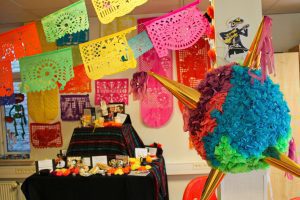
Celebrating the Mexican tradition of “Día de los Muertos”
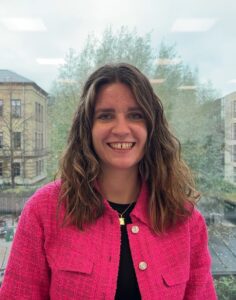
Chloé Larrose Teacher of FLE /S
Prins Henrik School is now offering FLE/S (French as a foreign language / French as a second language) courses to help students make the most of their schooling. Based on students’ specific needs, these courses aim to support and reinforce the learning of French in a school setting. This can include all language skills, from writing and speaking to grammar and vocabulary. The aim is to develop a better command of the language, so that students can continue their studies in secondaire. These courses are a privileged opportunity to work in a group to provide more personalized support.
FLE/S classes are as close as possible to compulsory courses, so they are not completely detached from the programme.
FLE students are identified by the French teachers and integrated into the program after an estimation of the needs in French. They are then integrated into a group for a few weeks (from vacation to vacation) and their progress is re-evaluated at the end of each period to keep as close as possible to their real needs. The whole team works hand in hand to support the students in this new teaching format.
Watch video in French Watch video in Danish Watch video in Danish and French
At the end of 9th grade all of our students sit for the DNB, the French compulsory exams.
Students obtain their DNB, based upon the evaluation of their “common knowledge base” (socle commun), meaning they have achieved the general objectives in regards to knowledge and skills, competence level, and culture, and have passed the final compulsory exams.
- Achieving the “common knowledge base” (socle commun) is worth 400 points and is based on student evaluations during the 4th cycle.
- The final exams (French, Math, History-Geography/Civics, Earth and Life Sciences, along with the oral presentation represent 400 points).
Students obtain the DNB if they earn at least 400 out of the 800 points possible.
The following mentions will be granted:
“Assez bien” (good enough) (AB) if the student gets more than 480 points out of 800
“Bien (good)” (B) if the student gets more than 560 points out of 800
“Très bien” (very good) (TB) if the student gets more than 640 points out of 800
We hold a ceremony at the school at the end of the school year.
See link for further details on the DNB (exams and preparation for the exams).
Final exam results
Prins Henrik School offers students the possibility of sitting for the compulsory Folkeskole oral and written exams (the National Danish exams) in Danish. The test covers four different language areas: composition, spelling, reading, and spoken Danish. Students receive four grades, one per discipline, based on the Danish 7-point grading scale. Those who haven’t reached an adequate level in Danish to take the exams, are evaluated by an internal written and oral test, corresponding to their Danish level.
For more details, see Folkeskole Exams in Danish.
A certificate is issued for passing the Danish National tests in oral and written Danish.
All of our students are required to take the French national academic qualification at the end of terminale.
From 2021, student academic qualifications are based on:
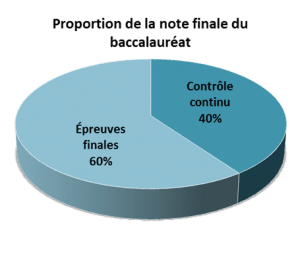
See here for more information about the French national academic qualification, Le Baccalauréat 2021.
Overview of Le Grand Oral from the French Education Ministry.
Link to information document from Ministère de l’Education nationale français
Year-end exam results
We hold a ceremony for the new graduates at the end of the school year.
Photo: AnnaClick
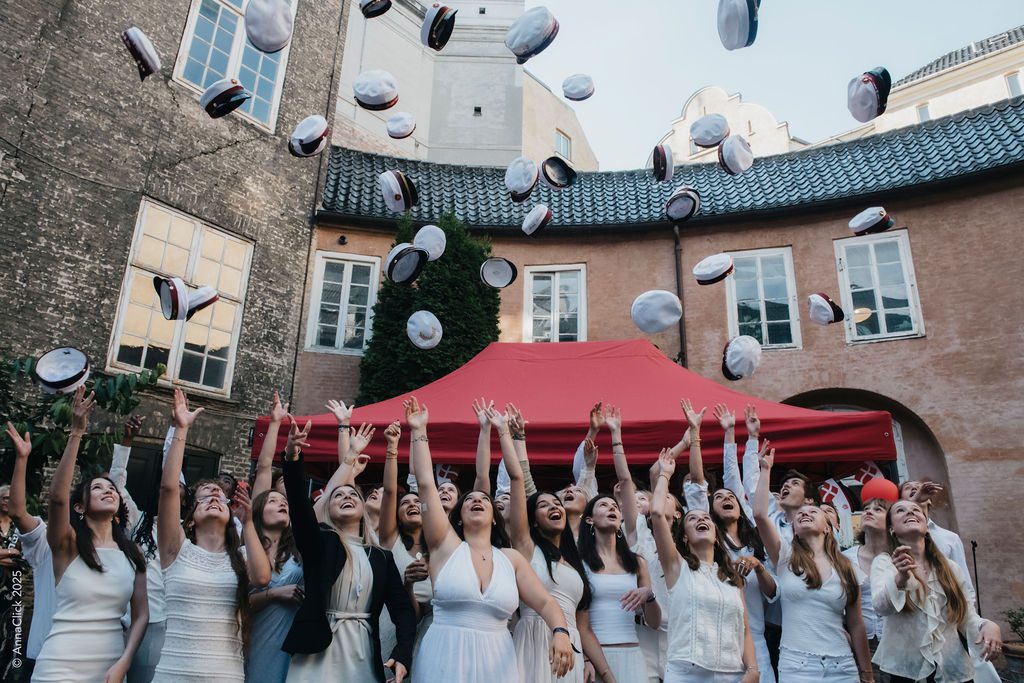
Prins Henrik School offers a double final qualifying exam, a Danish/French Final exam or Baccalauréat (DFB), where students take both the French Baccalauréat, along with exams in Danish level A and History level A, which follow the requirements for Danish gymnasiums (STX).

Students taking the DFB are at an advanced level of Danish and history: Danish level A and History level A, and the DFB diploma enables students to apply for higher education in Denmark.
There are three exams in Terminale in Danish and History: an oral exam in History and a Danish exam that includes a written and oral component.
Students receive grades all three years of lycée, and are assessed according to the Danish 7-point grading scale.
Students receive a special diploma, which shows both the results from the French final exam, along with the results from the Danish exams.
Average DFB grades in 2024: 10.1 / 12
The conversion of French grades follows the Education and Research Ministry’s current grading scale.
About the preparation of the DFB.
Description danish
Description history
At Prins Henrik School we are committed to offering academic counseling from 6th grade to terminale.
- “Parcours avenir”, what’s that?
Our Future Program offers all students, from 6th grade to terminale, an introduction to working life, and we help students map out a plan for their education and career choices.
- Academic Counseling Resources
We offer students guidance and career counseling starting from the 6th grade, helping them map out their individual route to success. Supporting the academic choices of our students is at the heart of our school community:
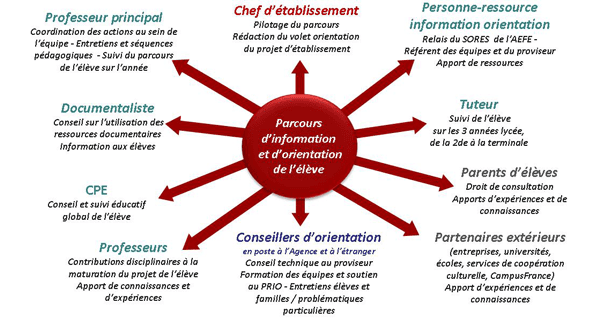
On site Counseling Resources at Prins Henrik School
- Academic Guidance Counselor for France and Abroad: Sophie Floris and Benoït Dodivers
(PRIO: Teachers with Academic Guidance Counselor training) - Academic Guidance Counselor for Denmark after 9th grade and assessment of work placement in 9th grade: Martin AAS
- Academic Guidance Counselor for Denmark after the final qualifying exam: Vice Principal
- Students can contact Martin Nielsen from the youth Academic Counseling in Frederiksberg district and Inge Duus Hjortlund regarding higher education opportunities after lycée.
Continuing at Prins Henrik School after 9th grade
After 9th grade the French school system continues with a 10th year of school, called seconde During seconde, students immerse themselves in different subjects and consider which track they will choose thereafter. After seconde, students either enter 1ère within the regular lycée system or at a technical lycée. Prins Henrik School offers a regular lycée education.
Entering seconde at Prins Henrik School (Powerpoint of February 7th 2023)
For more information about technical lycée, click here.
For more details about the curriculum and course hours, see seconde under lycée.
For students who need to double check if they have chosen the right spécialité for 1ère and terminale or who want to consider their options: www.horizons21.fr
Following the Danish System
After 9th grade students can choose to continue in their French secondary education or follow the Danish system:
10th grade: an additional year at the end of Danish Folkeskole. Around 50% of 9th graders in Denmark take the 10th year.
For further details see: https://www.ug.dk/uddannelser/grundskoleundervisning/grundskolemv/10-klasse
“Efterskole” in 10th grade. Spending the 10th year at efterskole has become very popular in Denmark, so it is important to apply early on to ensure a spot at your preferred school. Learn more at: https://www.efterskolerne.dk/
Continuing to gymnasium: STX (regular gymnasium), HTX (Technical gymnasium), HHX (Business gymnasium), HF (2-year general upper secondary program). See details at: https://www.ug.dk/uddannelser/gymnasialeuddannelser
Enter a vocational training program: EUD/EUX. See: https://www.ug.dk/uddannelser/erhvervsuddannelser
“Preparatory Basic Education and Training” (FGU) is a program for students who are not ready for gymnasium or for those who need a little more preparation, before embarking upon their secondary education, a vocational school, or other. For more details, see https://www.ug.dk/uddannelser/andreungdomsuddannelser/forberedende-grunduddannelse-fgu
Please note:
There are both private and public-school gymnasiums in Denmark. Efterskole is private.
There are specific requirements for both gymnasiums and vocational schools.
Students who finish 9th grade in Danish schools are usually one year older than students at Prins Henrik School.
For more information, please contact:
• Frederiksberg District Student Counselor: Martin Nielsen
• Student Counselor at Prins Henrik School: Martin Aas
Pursuing Your Higher Education in France
In 1ère and terminale students map out an academic plan to reach their educational goals. Individual academic counseling sessions are offered (one in 1ère and two in terminale), along with different activities to help them find the right school such as: Study-Choice Day “Forum de l’orientation,” information meeting for Sciences Po, information meeting for Parcoursup.
About Parcoursup 2023 from the meeting on December 13rd 2022
The links below can help you prepare for your higher education in France.
- Check out the PARCOURSUP homepage for more information and submit any questions you may have about application requirements for higher education institutions in France.
- The l’ONISEP website (offers free downloadable information about career choices and schools).
- FUN (France Université numérique – France’s digital university) with online courses, including student counseling and preparation for higher education.
AGORA
AEFE’s digital platform connects students from French schools abroad with other young people. It enables exchanges with past students already enrolled in institutions of higher education, where current students can get help mapping out their education and career plans, along with a little constructive input (questions, chats, interviews with active students, newsletters, etc.)
Here is a link to AGORA
“Excellence-major” scholarship
The “excellence-major” scholarship is awarded by the French Ministry for Europe and Foreign Affairs, making it possible for top qualifying terminale students from French Schools all over the world, who are not French nationals, to enter French institutions of higher education in France (universities and larger schools). Every year 200 new recipients receive the award that helps finance their education for five years (the time it takes to earn a Masters 2 or similar diploma) and find their bearings in France (welcome meetings in Paris and other places in the country, plus mentorship offers).
For further details, see Excellence-major scholarship.
Higher Education in Denmark
Students with a final qualifying exam from Prins Henrik School can apply to Danish universities and continue their higher education in Denmark. There are also degrees taught solely in English, for students who are not yet proficient in Danish.
Every fall semester we organize an informational meeting about the application process for those in 1ère and terminale, along with setting up individual meetings with the education counselor in Copenhagen: Inge Duus Hjortlund.
Students in lycée are welcome to contact Inge Duus Hjortlund at the Education and Career Counseling office in Copenhagen for more information about higher education opportunities in Denmark.
Education and Career Counseling Denmark – Studievalg Danmark
Inge Duus Hjortlund
E-mail: IDHJ@studievalg.dk
Telephone: 33 33 20 88
Valhalsgade 5, 2200 København N
Denmark
Please Note :
- The application deadline for higher education in Denmark is March 15th at 12 noon (CET)(for both quota 1 and quota 2).
- Applications are made online through the admissions site at: www.optagelse.dk
- The UG website (The Education guide) provides information about all the different educational programs in Denmark, along with information about application deadlines and admission requirements: https://www.ug.dk/videregaaendeuddannelse
- Danish universities open their doors during week 43 to students in Terminale, offering them a week-long experience of their campus.
Requirements for Admission to Danish Universities depends on two things:
- Grade point average of the student’s final qualifying exams
- The student’s level of instruction.
How to convert the French grading scale
For more information about assessments of subjects at Danish gymnasiums
Previous subject levels divisions (until 2020)
New subject level divisions 2021 to present)
You are welcome to contact Vice Principal, if you have any questions: Directrice.danoise@lfph.dk
Prins Henrik School staff can only offer guidance and advice. Students are responsible for contacting their chosen university for an assessment.
Applying for Higher Education in English-Speaking Countries
Every year some of our students get accepted at schools to study literature, or studies within the humanities and life sciences, or into programs with physics and math at reputable universities in the UK, USA, or Canada, such as Cambridge, Oxford, King’s College, Stanford and McGill University.
Students are supported throughout the application process by the lycée PRIO’s (academic counselor trained teachers), along with their class-teachers and their English teachers.
A proficient level of English helps students gain admission to prestigious schools. Time and again, we see how proper preparation for the “Cambridge Advanced Certificate” – offered here at Prins Henrik School – proves invaluable.
Read all about past LFPH students and where they are today! (In French)



